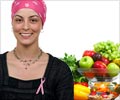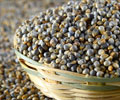- “Protein in the vegan diet” Reed Mangels, Phd, RD. The Vegetarian Resource Group
- “Vegan For Life” Jack Norris, RD & Ginny Messina, MPH, RD
- “Protein alternatives to meat” University of Wisconsin Integrative Medicine
About
There are twenty different amino acids that make up proteins. Humans cannot make nine of the twenty amino acids and so they are considered essential. They must be attained from diet. All the nine essential amino acids (EAAs) are required by the body to make various proteins like enzymes, hormones, connective tissue and muscles.
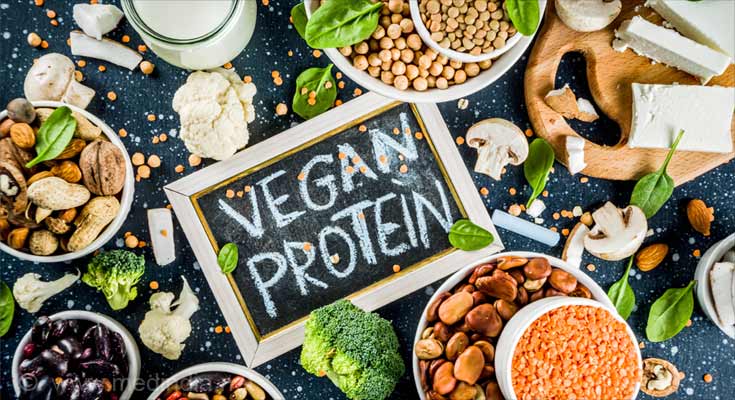
Proteins in the human body tend to have a consistent ratio of EAAs. Percentages of EAAs in both animal and soy products are a close match to those in the human body. Therefore proteins from these foods are considered “complete” or “high quality”. Eggs, cow’s milk, meat, fish and soy are complete proteins. Non-soy plant foods like grains, beans and nuts have a lower percentage of at least one essential amino acid, making them “incomplete”.
There exists a common false impression amongst people that non-soy plant foods are completely devoid of one or more essential amino acids. Plant proteins are considered as “ineffective proteins”. But in reality all plant proteins contain at least some of every essential amino acid with the amounts of one or more being low. For example, as a general rule, grains are low in lysine (an essential amino acid) and legumes are low in methionine (another essential amino acid) but not completely lacking in them.
According to Jack Norris RD, co-founder and president of Vegan Outreach, “An individual can get enough protein and all the EAAs by eating just one type of food like pinto beans. But a huge amount, about four cups per day would have to be eaten to get the recommended percentage of the lacking amino acid. This would be an impractical approach for two reasons. Firstly it would be boring and secondly all the beans would displace foods needed to satisfy other nutrient requirements. Therefore eating a variety of protein sources would make better nutritional sense.”
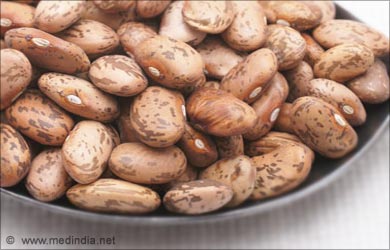
Soy, Quinoa, Amaranth amongst the plant foods are considered complete proteins as they contain the required percentages of all essential amino acids and the demand for the EAAs are efficiently met by consuming a standard serving size.
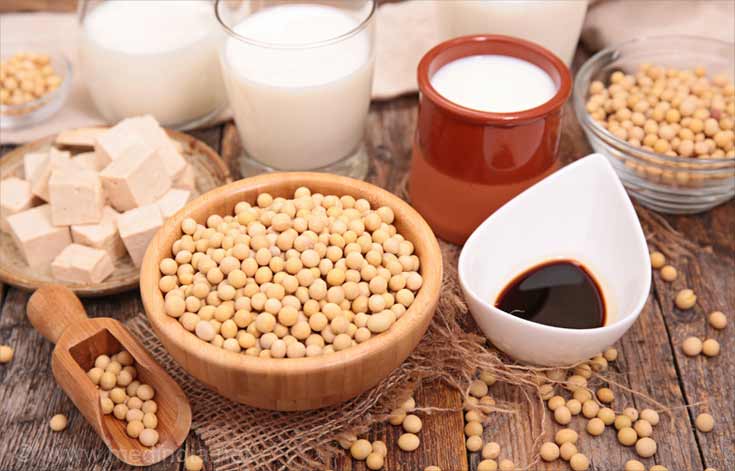
Lysine: Limiting Amino Acid in Vegan Diets
According to health experts the recommended dietary allowance for lysine is more important than for protein. Lysine is considered a limiting amino acid in most plant foods, which means that the food only contains a small amount of amino acid and its shortage in the diet may limit the synthesis of body proteins and enzymes. It is said that if one meets lysine requirements on a vegan diet, the person is most likely to meet protein requirements.
Foods rich in lysine are:
- Quinoa, amaranth seeds (They are seeds but are considered as a cereal)
- Seitan (A high–protein meat substitute)
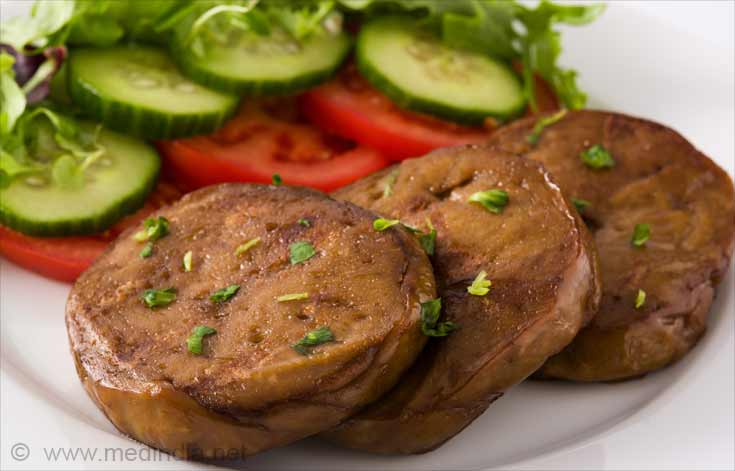
- Soybeans and their products (tempeh, tofu, soy milk, soybean, etc.)
- Beans (garbanzo, kidney, pinto, etc.) and their products (falafel, hummus, refried, etc.)
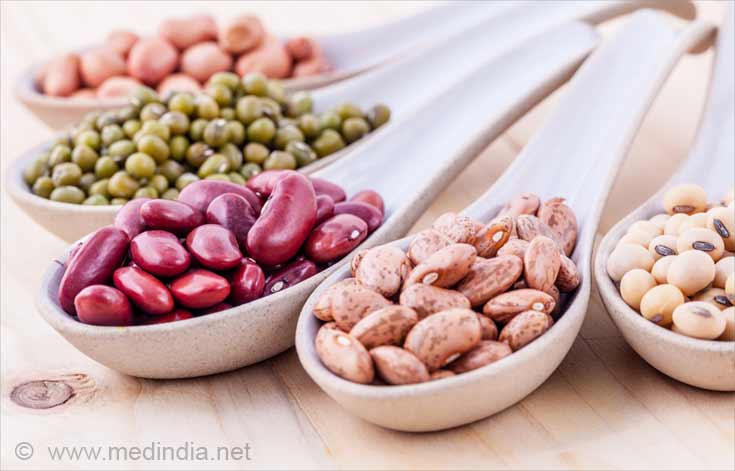
- Peas (green, split, black-eyed, etc.)
- Pulses, legumes, lentils
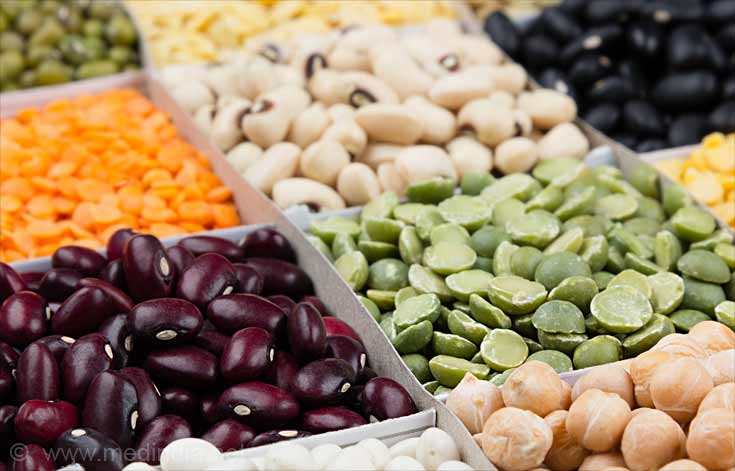
- Nuts (peanuts, pistachios, cashews)
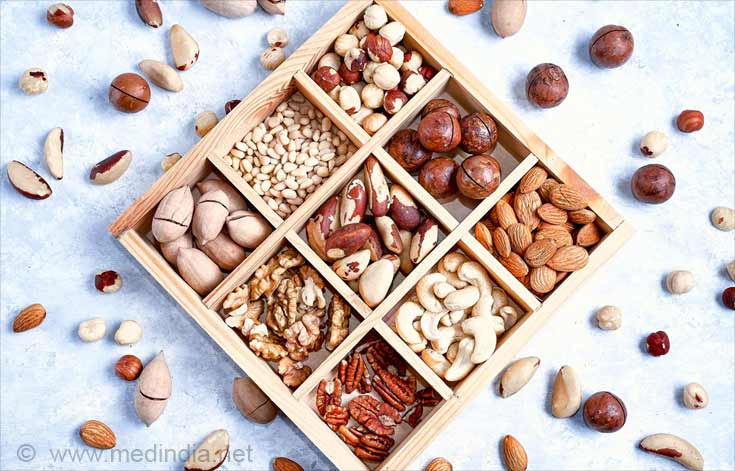
- Seeds (pumpkin seeds, sesame seeds)
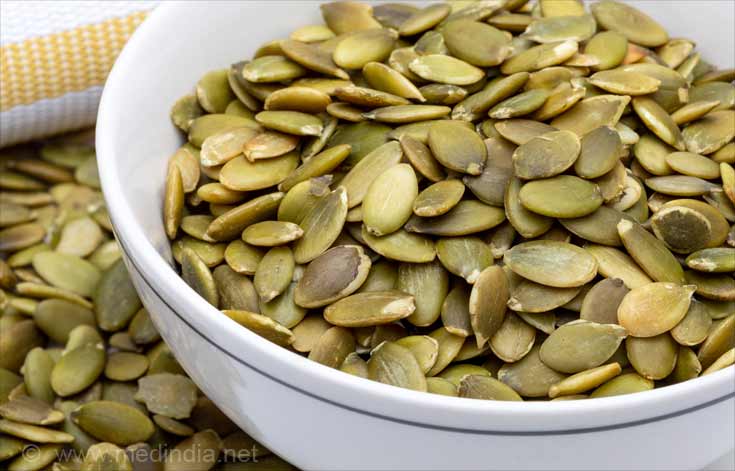
Multiple servings of high-lysine foods can give best results in terms of improving the protein quality of a vegan diet (diet excluding milk and animal foods).
Plant proteins are healthier than animal proteins as they pack in antioxidants, fiber, essential vitamins and are devoid of harmful fats. Once "educated" most vegans consider it impossible for someone not to get enough high quality protein on a plant based diet. Most plant foods, including the ones not considered a source of proteins like grains, corn, greens, potatoes, vegetables also contain essential amino acids in varying amounts.
High Quality Protein Diet
In an effort to make sure vegetarians were getting enough of all the amino acids, in the early 1970s in the book, Diet for a Small Planet, Frances Moore Lappe popularized the idea of combining plant proteins at each meal in order to get a "complete" protein. By mixing beans and grains, one could make sure that they got both methionine and lysine in the meal.
It is now known that the liver stores various essential amino acids and so it is not critical to combine different protein sources in every meal. One is only required to replenish the storage.
The 2009 American Dietetic Association's Position Paper on Vegetarian Diets says:
"Plant protein can meet requirements when a variety of plant foods is consumed and energy needs are met. Research indicates that an assortment of plant foods eaten over the course of a day can provide all essential amino acids and ensure adequate nitrogen retention and use in healthy adults, thus complementary proteins do not need to be consumed at the same meal."
It is recommended to eat a variety of unrefined grains, legumes, seeds, nuts, and vegetables through the day, so that if one food is low in a particular EAA, another food makes up for it. By choosing the right foods and eating enough calories, a vegan can easily meet all the essential amino acids requirements. A well planned vegan diet could be the most wholesome high quality protein diet.
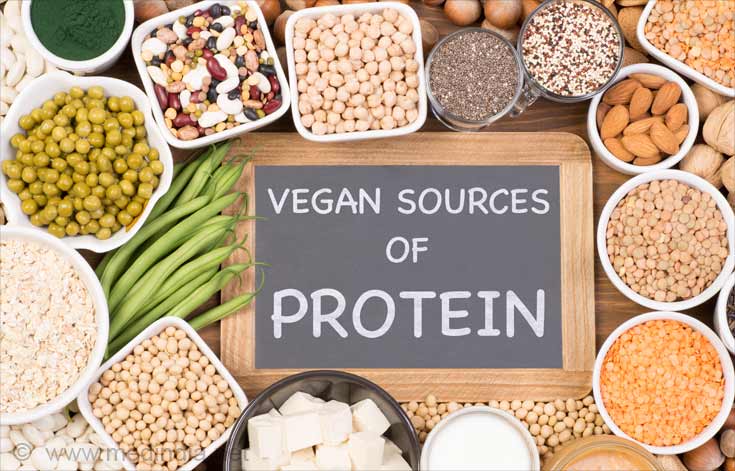
The US RDA (Recommended Dietary Allowance) for protein takes into account the RDA for amino acids. Therefore the amino acid recommendations are rarely mentioned.
In general the recommended intake of proteins for healthy adults stands at 0.8g per kg body weight. According to research and nitrogen retention studies, vegans could benefit from a higher protein recommendation (10 percent higher or 1 to 1.1g/kg body weight) considering the fact that plant proteins are harder to digest.





